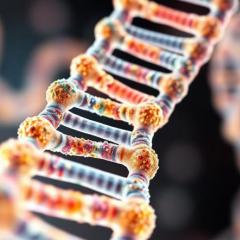University of Queensland Faculty of Medicine researchers have been awarded $4.34 million in National Health and Medical Research Council (NHMRC) grants.
The seven grants, awarded to projects focused on improving the health of Australians, include a Centre for Research Excellence, five Early Career Fellowships and a Career Development Fellowship.
Executive Dean Professor Geoff McColl said the funding highlighted a range of research projects with significant potential to benefit the wider community.
“Our researchers have the incredible ability to change the lives of millions of people, both in Australia and overseas,” Professor McColl said.
“Grants like these provide vital support, allowing researchers to continue to find answers to challenging medical puzzles.
“The latest funding from the NHMRC is confirmation that UQ’s Faculty of Medicine remains home to outstanding medical research.”
School of Public Health’s Professor Gita Mishra received $2.45 million to establish a new Centre for Research Excellence on Women and Non-communicable Disease (CRE WaND).
The centre will further research focused on prevention and detection of disease, as non-communicable diseases are now the leading causes of mortality and morbidity among women in Australia and globally.
The five Early Career Fellowship recipients’ projects range from investigating cancer and creating cheaper diagnostic tests, to testing a new antibiotic and two genetic studies.
UQ Centre for Clinical Research (UQCCR) infectious disease specialist Dr Patrick Harris will conduct a trial of a novel antibiotic for patients with bloodstream infections caused by antibiotic-resistant bacteria.
The trial will also examine the usefulness of whole genome sequencing for tracking and preventing infections.
More affordable in-house tests tailored to address specific medical needs in different settings will be the focus of UQCCR researcher Dr Hosam Zowawi’s project.
He hopes to also initiate a sustainable crowdsourced system to monitor the spread of resistant microbes in Australia.
Dr Aideen McInerney-Leo from the Dermatology Research Centre at the UQ Diamantina Institute will undertake genetic analysis of individuals and families with melanoma.
She wants to identify genes which may have increased an individual's risk of developing melanoma in the first place as well as other genes modifying the severity of the disease.
Mater Research Institute-UQ’s Associate Professor Luregn Schlapbach will investigate how to improve outcomes for children with sepsis, one of the leading causes of severe morbidity and mortality in children worldwide.
Also working at the Mater Research Institute-UQ is Dr Seth Cheetham, who will focus on the role of DNA pieces called L1’s in cancer.
These pieces cause DNA damage when they ‘jump around’. Dr Cheetham believes L1 interacting proteins may be important early diagnostic and prognostic indicators for cancer.
Career Development Fellowship recipient Dr Leanne Sakzewski’s grant will fund three studies (HABIT-ILE, Participate-CP and The Friends Project), to be tested in children with cerebral palsy.
The studies help children develop their motor and social skills.
The Faculty awardees are among 24 recipients across UQ who received over $14 million in NHMRC grants this month.
Media: Faculty of Medicine, med.media@uq.edu.au, 3365 5133.



